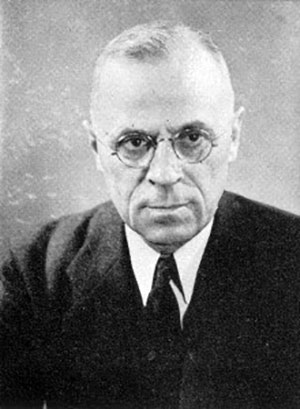Edwin Sutherland (Edwin Hardin Sutherland)

Edwin Sutherland’s historical importance rests upon his having introduced (in a 27 December 1939 speech to the American Sociological Association, titled The White Collar Criminal) the concept of white-collar crime, a concept which violated existing prejudices that aristocrats can do no wrong (which was famously expressed in the ancient legal view that a king could do no wrong). After receiving his PhD from the University of Chicago, Sutherland was at William Jewel College, Missouri (1913–19), the University of Kansas (the summer of 1918), University of Illinois (1919–25), Edwin Sutherland spent a summer at Northwestern (June–August 1922) prior to arriving at the University of Minnesota in 1925. Edwin Sutherland solidified his reputation as one of the country’s leading criminologists at the University of Minnesota, where he worked from 1926 to 1929. During this period, he concentrated in sociology as a scientific enterprise whose goal was to understand and control social problems. For several months in 1929 Sutherland studied the British penal system while in England. Also, during 1929–30 Sutherland worked as a researcher with the Bureau of Social Hygiene in New York City. In 1930, Sutherland accepted a position as a research professor at the University of Chicago. In 1935 he took a position at Indiana University, where he remained till his untimely death on October 11, 1950. He founded the Bloomington School of Criminology at Indiana University.
During his time at Indiana, he published four books, including Twenty Thousand Homeless Men (1936), The Professional Thief (1937), the third edition of Principles of Criminology (1939), and the censored first edition of White Collar Crime (1949), his masterpiece. It remained censored until the original text was published in 1983 by Yale University Press. Edwin Sutherland was elected president of the American Sociological Society in 1939, and president of the Sociological Research Association in 1940. If he had not already become prominent within the sociological profession prior to his introduction of the concept of white-collar crime in 1939, one can only speculate whether the seminal concept would have been published, as America’s largest corporations threatened to sue the publishers of White Collar Crime. (They were successful, and had all references to the names of litigating corporations removed from the text.) When Yale University Press issued the unexpurgated version in 1983, the introduction by Gilbert Geis noted that Sutherland’s concept of white-collar crime “altered the study of crime throughout the world in fundamental ways”.
Born
- August, 13, 1883
- USA
- Gibbon, Nebraska
Died
- October, 11, 1950
- USA
- Bloomington, Indiana

